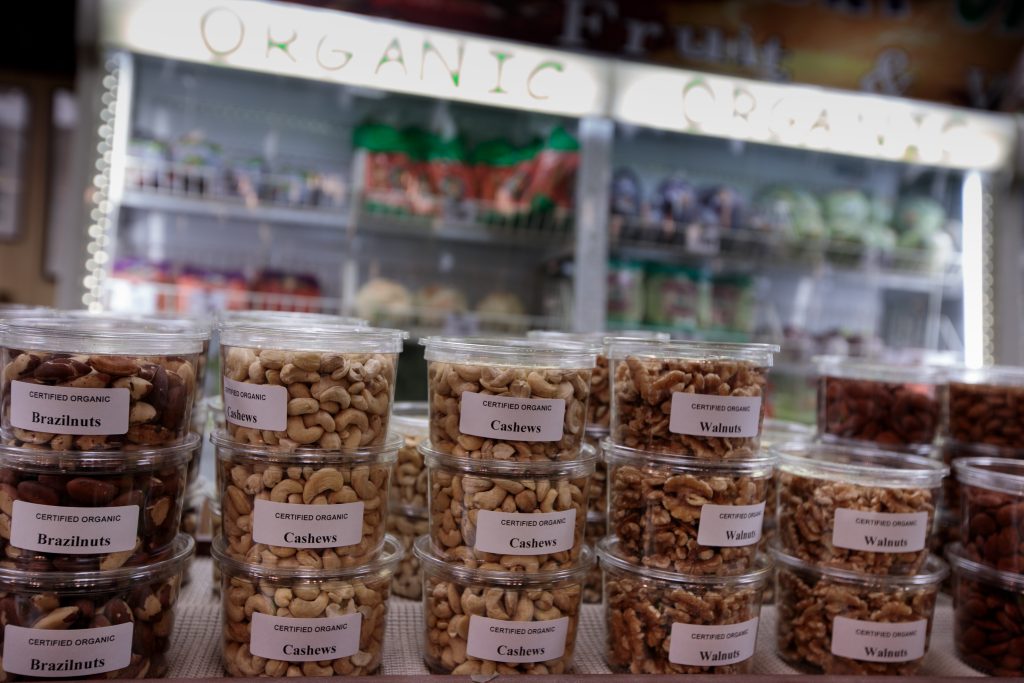Alcohol linked to more severe reactions in nut allergies: New study

Posted January 17, 2025 8:52 pm.
A McGill-led study that began back in 2011, which observed more than 1,100 adults presenting with anaphylaxis – an acute life threatening allergy – across eight emergency departments, revealed interesting new data that shows a close link between alcohol and more severe reactions in nut allergies.
The registry to collect data on the clinical symptoms and triggers of anaphylaxis began after the tragic death of a 16-year-old girl named Sabrina Shannon, when it was suspected that she was exposed to milk, a known allergen of hers.
In response, Health Canada contacted Dr. Moshe Ben-Shoshan, associate professor of the allergy, immunology and dermatology division in the department of pediatrics at McGill University, who began the study with his team to better understand the burden and management of anaphylaxis – a severe allergic reaction involving at least two organ systems such as tightening of the throat or difficulty breathing, hives or rashes, vomiting or a drop in blood pressure.
“The objective was to try to get better understanding on the severe allergic reaction, what are the triggers, what are the factors associated with the use of epinephrine, what are the factors associated with admission to intensive care units, and what are the factors associated with severe reactions,” said Dr. Ben-Shoshan.
The study, which began at the Children’s Hospital in Montreal, grew to encompass participants from Ontario, British Columbia, Newfoundland, Alberta and most recently Manitoba.
But for this study, Dr. Ben-Shoshan and his team decided to focus on individuals 18 and older where they were given access to all the events that occurred before and during hospitalization in cases involving anaphylactic shock with allergens.
Some of the main findings revealed that similarly to children, food was the major factor associated with anaphylaxis but that venom and alcohol consumption was associated with more severe reactions to tree nuts and nuts in general.
“In this case we sort of compared each trigger to all the entire anaphylactic patients and we found some interesting findings, which in this case what interests a lot is the nut finding so people who have a known nut allergy had an association with alcohol with their presentation to the hospital for anaphylactic shock,” said fourth year medical student and author of the study Roy Khalaf.

“One of the things that we think that links alcohol and nuts is that some alcoholic drinks can contain nuts and people with nut allergy will not be aware that they are there,” added Dr. Ben-Shoshan.
“For example, there’s amaretto sour, there’s other drinks or cocktails that contain nuts and people do not necessarily even ask, maybe because it’s a social environment and it’s embarrassing to ask about their allergies and making the server aware and maybe the server even is not aware,” he went on to explain.
Another interesting finding according to Khalaf, showed that of the adults that presented at the hospital with anaphylactic shock, less than 25 per cent had omitted or neglected to use epinephrine to treat the symptoms of their allergies.
“This shows that somebody who already has an allergy and who’s supposed to have an epinephrine at home didn’t use it or isn’t using it as often as we would like to do it and we know that epinephrine saves lives, you know that the earlier you give the epinephrine the better the outcomes are going to be,” described Khalaf.
#WATCH: Allergy specialists leading McGill study, confirm link between alcohol consumption and severe allergic reactions.
— CityNews Montreal (@CityNewsMTL) January 17, 2025
READ: https://t.co/Mkgse1PTsL pic.twitter.com/yo609nO3DL
Dr. Ben-Shoshan and Khalaf say that those with nut allergies should be aware of the new risk revealed from this new study and are recommending people be more vigilant when consuming alcohol by checking labels and ensuring their drinks aren’t nut-flavoured or made with artificial flavoring that could potentially expose them to trace allergens.
“What I’m hoping for at least is that this study is a sort of domino effect, you know like we start with this study we talk about the dangers of nut flavoring and the dangers of not properly labeling alcoholic drinks and then afterwards hopefully more and more people react to it,” said Khalaf.
“Just be aware that there are certain risk periods and there are risk factors that can increase the likelihood of having a reaction and the reaction can be more severe in the presence of certain factors and be ready to treat, don’t hesitate to use the epinephrine,” added Dr. Ben-Shoshan.








